
One cannot plausibly argue that sports, culture, and politics are not interrelated. Additionally, there have been many instances when a particular game has dominated for a few decades followed by others. Many conspicuous examples are there like the monopoly which hockey enjoyed in pre and early post-independence era in India.
Today, we will be talking about three cricket playing nation who were feared and revered for their performances but aren't that much venerated these days. There can be overwhelmingly several grave reasons for the precipitous decline in the popularity of a game in a country.
These reasons include factors such as political instability, corruption and ineffective organization by the respective cricket boards.
#3 Sri Lanka
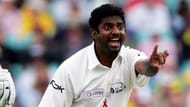
It's hard to naturally imagine a talented team which traditionally consisted of several top guns is struggling desperately to even compete; especially in white-ball cricket. A successful team which had Lasith Malinga's pace, Muttiah Muralitharan's spin, Sanath Jayasuriya's aggression, Kumar Sangakkara's wicket-keeping, Tillakaratne Dilshan's unique flair, and Mahela Jayawardene's captaincy, all of them able to dominate the match single-handedly.
After the retirement of these six stars, there was no smooth transition to the youngsters in the Sri Lankan cricket team from one generation to the next generation. Muralitharan even once publicly stated that politics was destroying cricket in Sri Lanka.
Sri-Lankan cricket board is much less effective and there have been frequent news of corruption in the SLC. The team, in addition, have struggled with leadership issues, poor selection, and abysmal fielding.
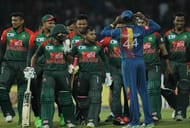
It's painful to watch once a glorious team beyond their days of success. But the recent resurgence of the Sri Lankan team against South Africa might be their comeback to the past days.
#2 Zimbabwe
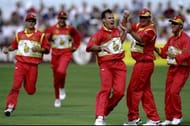
With talented players like flowers brothers, Alistair Campbel, and Heath Streak, Zimbabwean cricket once inveighed with successful teams like Australia. 1997-2002 is popularly considered as the golden period of cricket in the country.
Things started declining when Robert Mugabe's established government started intervening in the cricket affairs and also announced the subsequent reduction in the funding of ZC. The 'black-armband' protest of Andy Flower and Henry Olonga was the turning point, which proved to be a career-ending act for them. Both of them retired and emigrated from Zimbabwe.
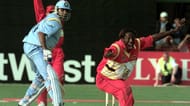
A countless myriad of fundamental problems grappled not only Zimbabwean Cricket but also ordinary people. Their captain Streak was sacked, and reservation in the sport was introduced. In addition, there was not enough time for the Zimbabwean players to adjust under the new contemporary system. The power vacuum created after the dismissal of Streak remained unfulfilled, as there was no central leadership.
For the modern record, untested Tatenda Taibu became the youngest Test captain but wasn't enough to relive the erstwhile Zimbabwean pride. They were hopelessly outclassed by the historically weakest considered Bangladesh cricket team at Chittagong in 2005.
#1 West Indies

It is surprising to see that so many sovereign islands from a specific region came under one official flag for cricket. West Indies had traditionally dominated the world cricket for almost a historic quarter of a century. Winners of first two World Cups and famous for their pace attack, they made every other team look dwarfed in every sense.
The economic mismanagement of WICB started to reflect in the 2000s. Maintaining the Carribean supremacy had come to be a thing of the past, now it was modern economic age and all the players demanded good fees. The row between the players and the WICB regarding the pay had come in the open. Though the performance of the West Indies side continued to be good in T20Is but declined sharply in Test matches and One Day Internationals.
The decline of cricket also coincided with the resurgence of other games like basketball, athletics, and other track events. There is an ample amount of talent pool in the Caribbean islands, but players are not willing to risk their career into cricket which offers only a bleak chance of success.
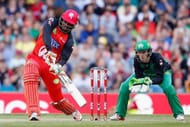
In the present day, all the star players like Chris Gayle are busy playing different T20 leagues but do play enough first-class games to be eligible to play Test cricket. WICB is also to be equally blamed for its mismanagement, unable to provide an efficient infrastructure for cricket.
In the wake of the above disappointments and the problems that have plagued Windies cricket, their recent win against England, where we saw the emergence of a quartet of fast bowlers spearheaded by their skipper Jason Holder, which proceeded to bamboozle the English batting-unit and script a 2-1 Test series win.
Following their 2-1 series win, the Windies also proceeded to draw-level the ODI series, where Gayle shellacked the English bowlers to the tune of 39 sixes and two hundreds.
The series against England gave us a glimpse of the lost glory of the Windies, and the upcoming months will amply vindicate whether that was indeed tangible progress or just a rare flash in the pan.
Looking for fast live cricket scores? Download CricRocket and get fast score updates, top-notch commentary in-depth match stats & much more! 🚀☄️
